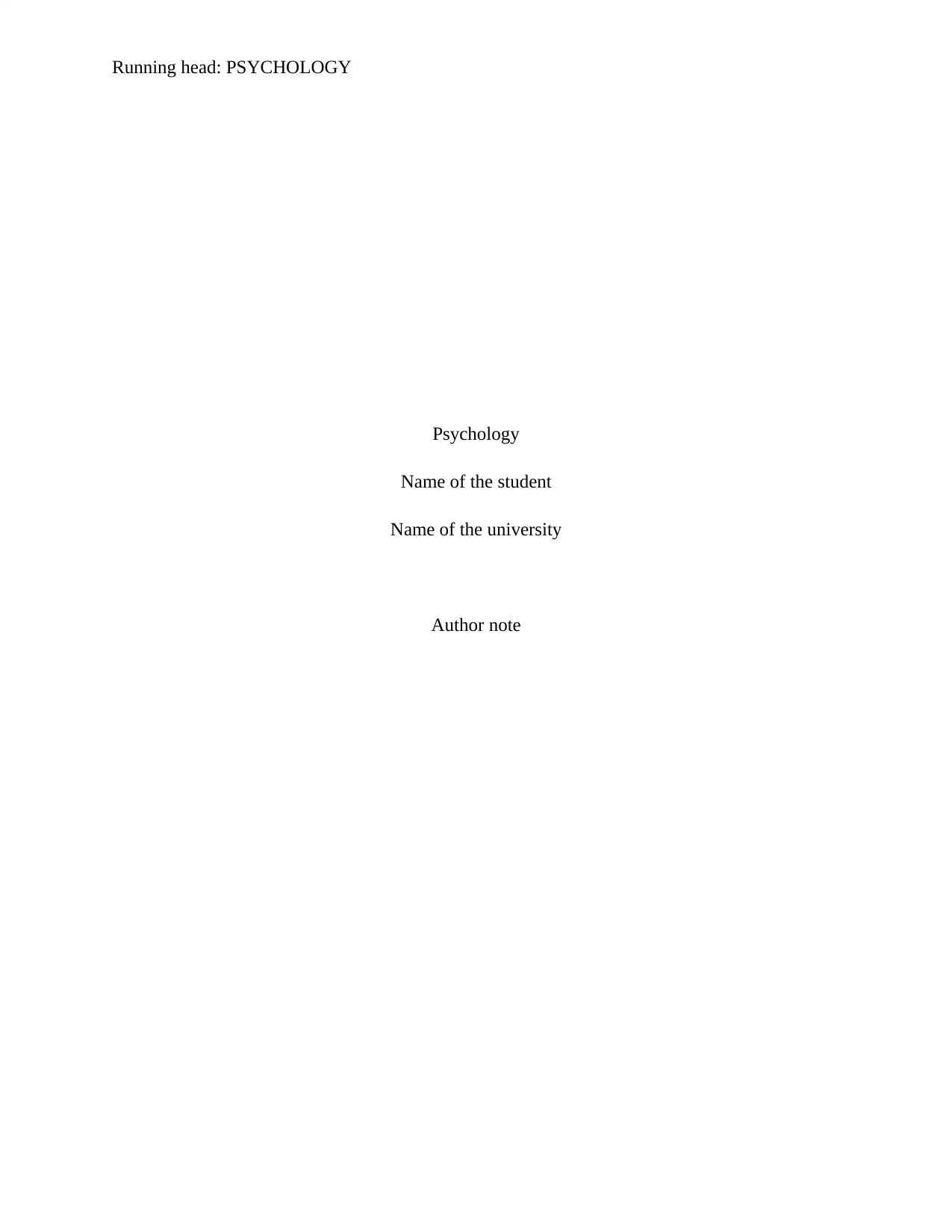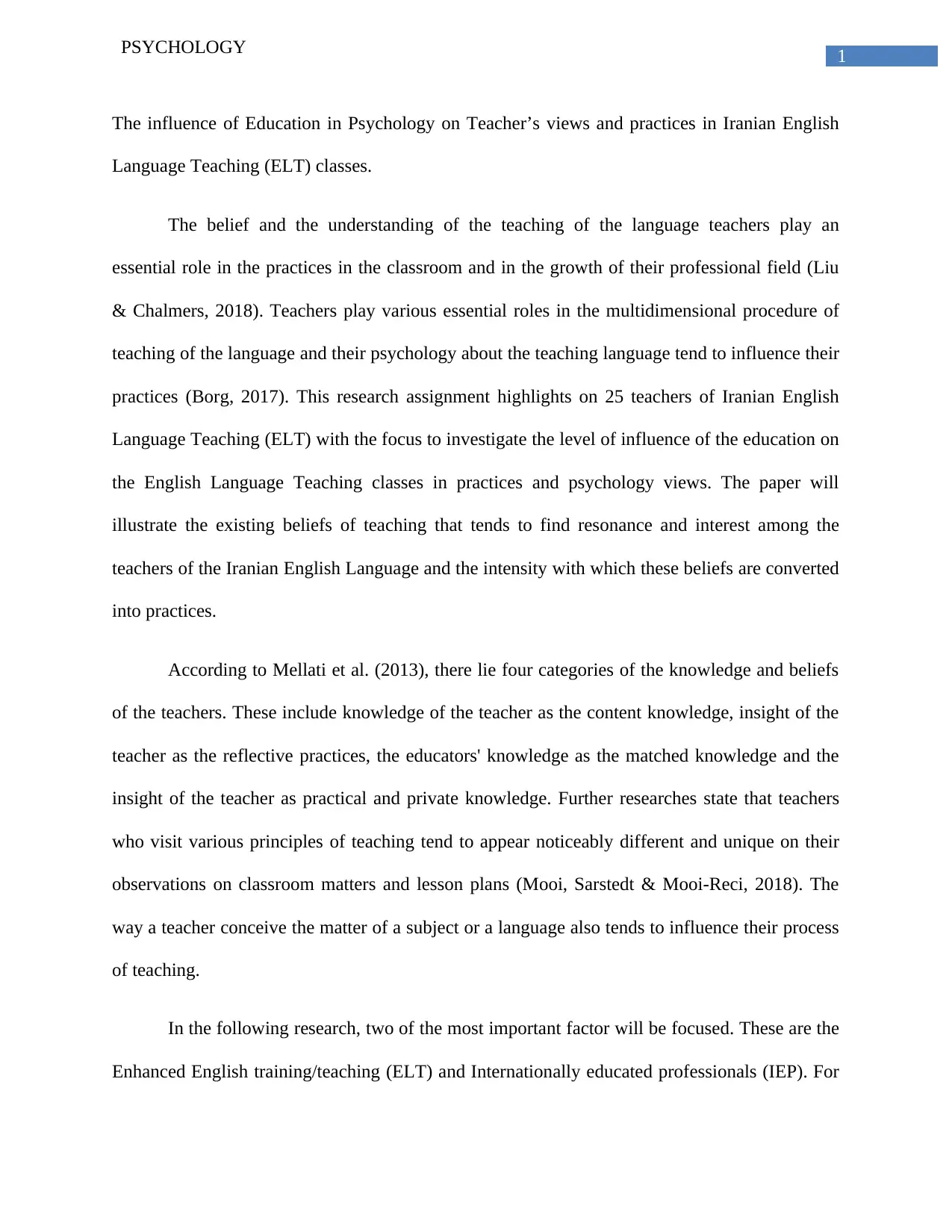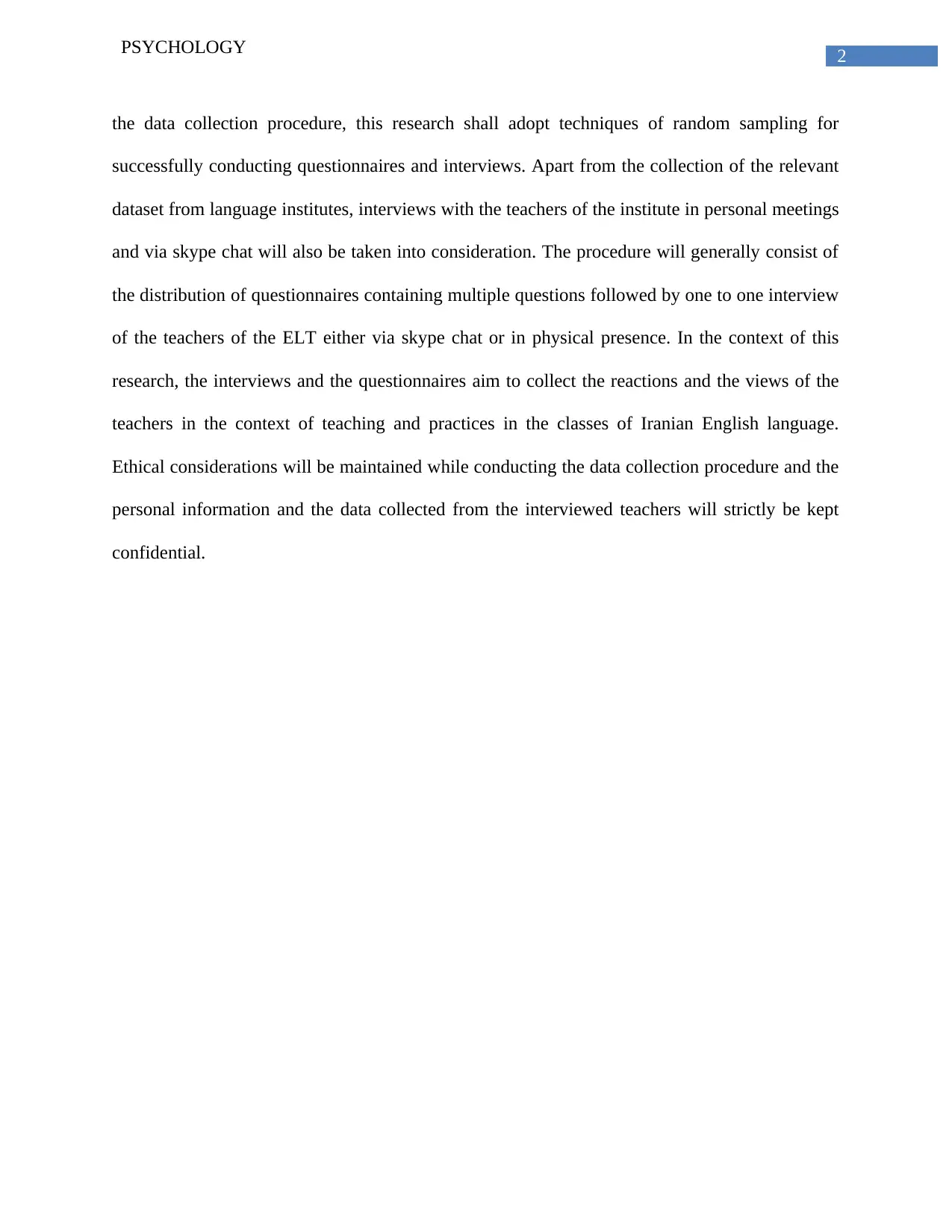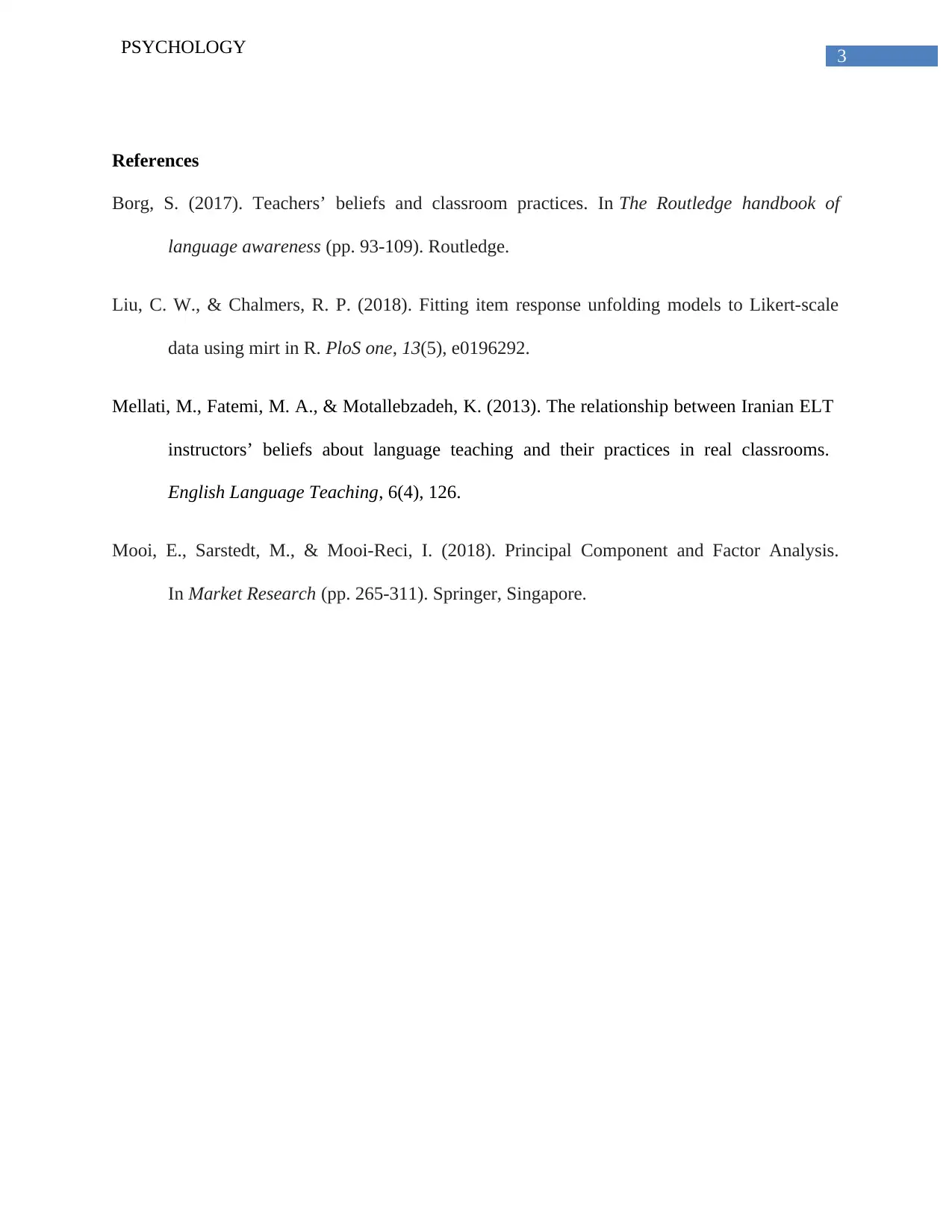The Influence of Education in Psychology on Iranian ELT Classes
VerifiedAdded on 2023/06/11
|4
|646
|262
Report
AI Summary
This report investigates the influence of education on the views and practices of Iranian English Language Teaching (ELT) teachers. It examines how teachers' beliefs and understanding of language teaching impact their classroom activities and professional development. The research focuses on 25 Iranian ELT teachers, exploring the impact of enhanced English training and internationally educated professionals. The methodology involves random sampling for questionnaires and interviews, including personal meetings and Skype chats, to gather teachers' perspectives on teaching practices. Ethical considerations are maintained to ensure confidentiality. The report references key studies and explores teacher knowledge, reflective practices, and the conversion of beliefs into classroom actions. The assignment also includes a detailed methodology design for surveys and interviews.
1 out of 4






![[object Object]](/_next/static/media/star-bottom.7253800d.svg)